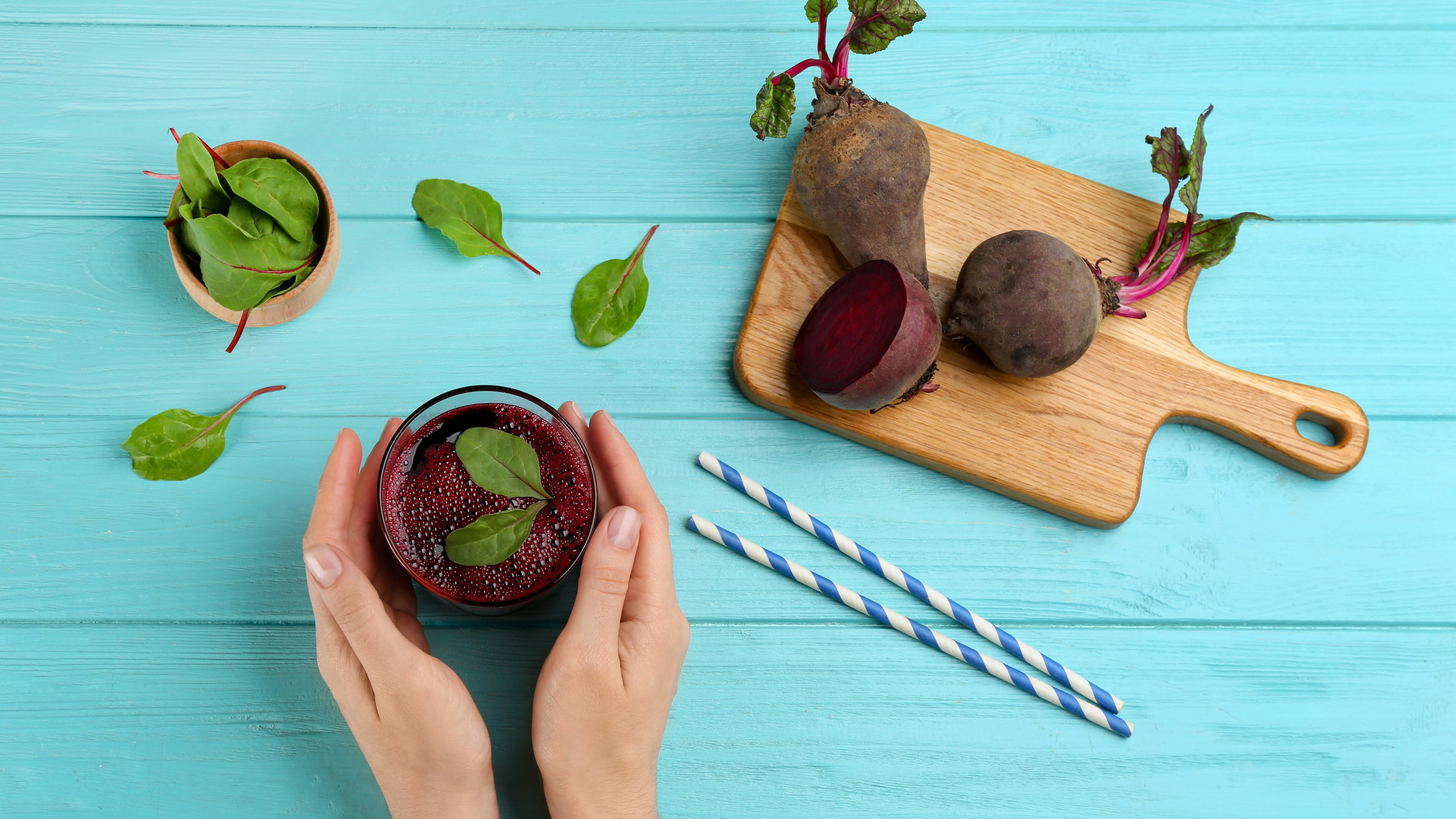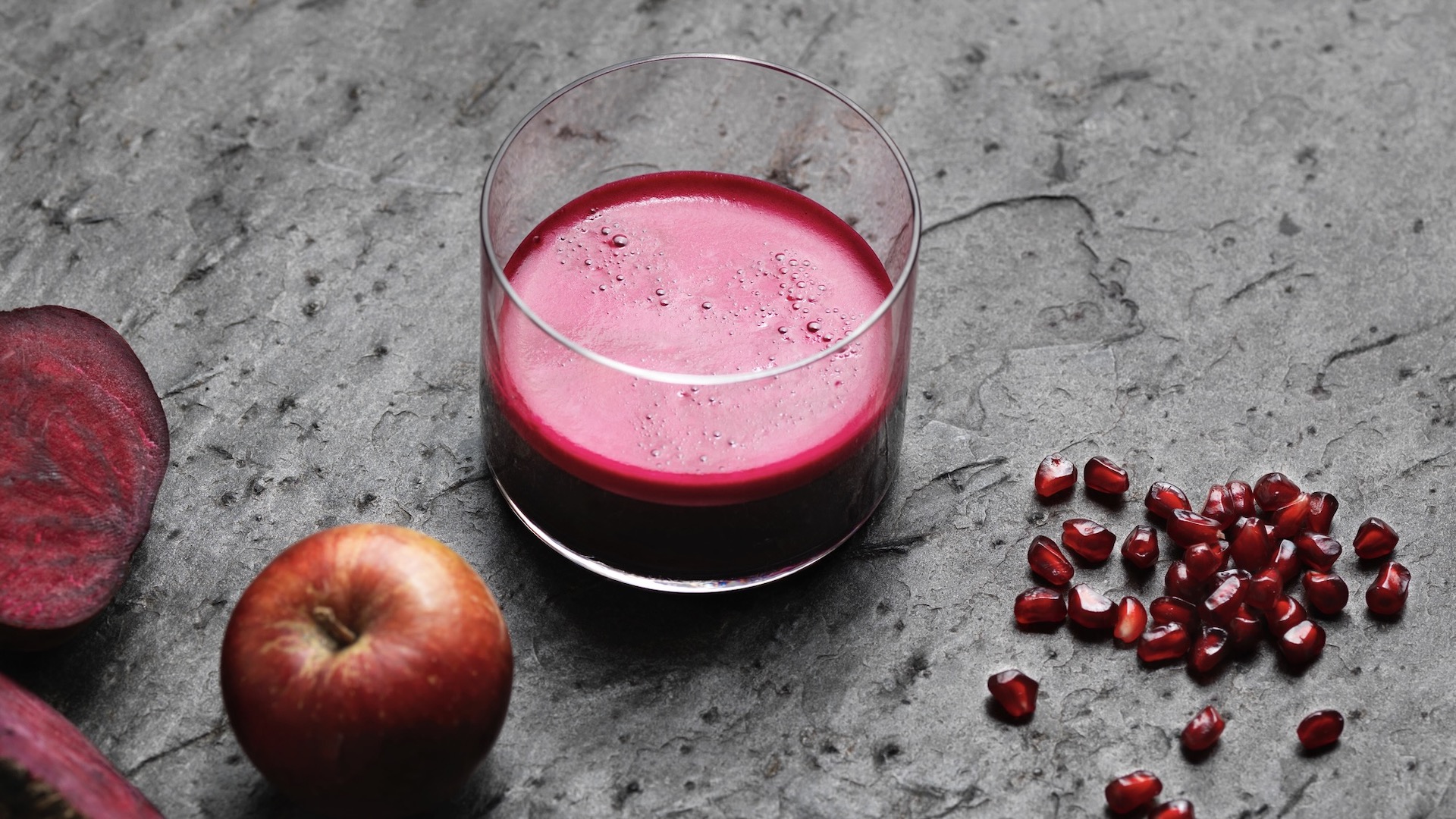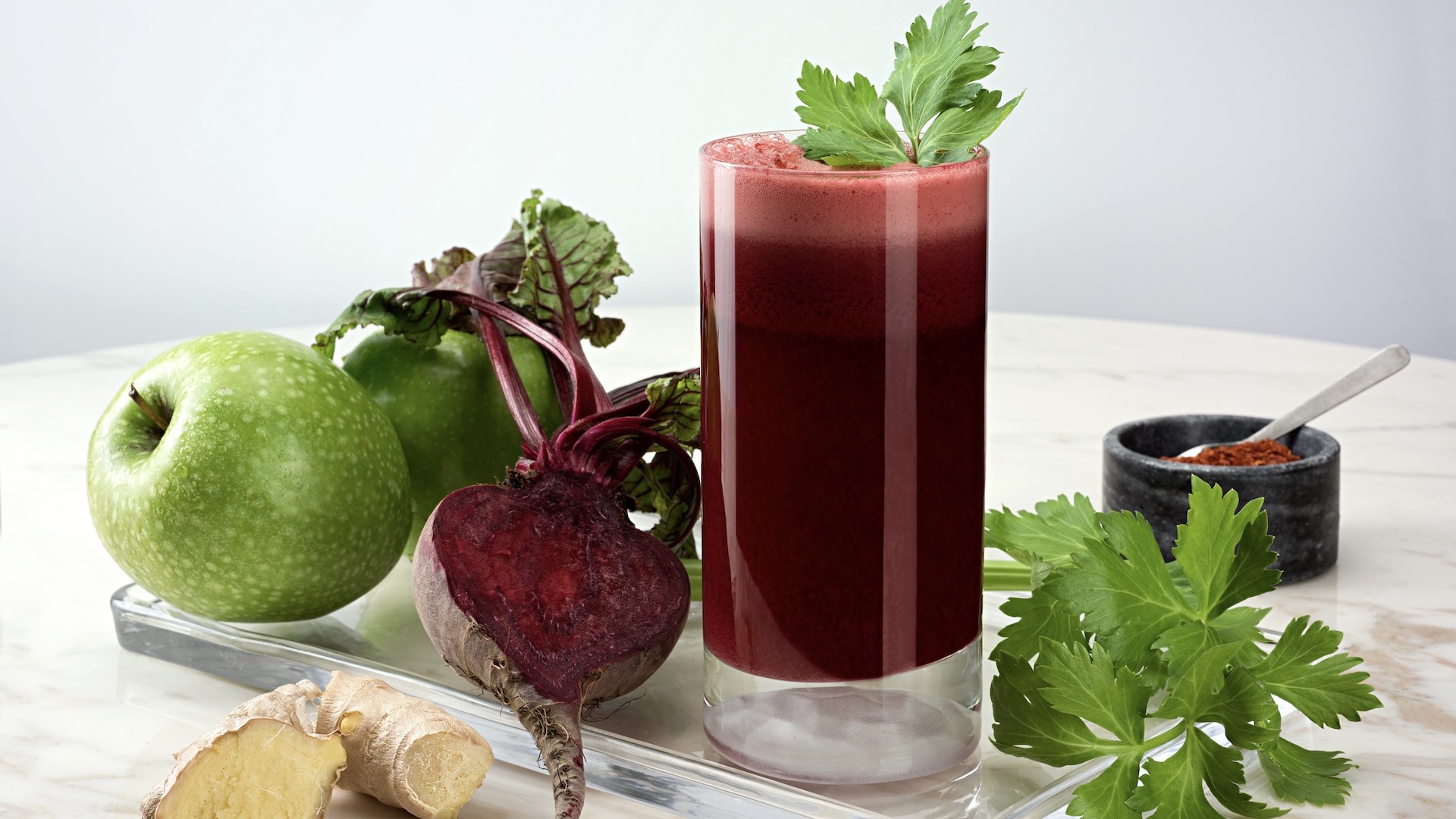Will drinking beetroot juice make you a better runner?
We look at the evidence on whether running performance can be enhanced by beetroot juice and supplements

It might seem unlikely, but the bright purple vegetable beetroot has become an increasingly popular supplement among athletes, including runners. Most sports shops and outdoor retailers have a selection of beetroot juice based products for runners on the market.
But is beetroot good for runners? Here we try to get to the root of the matter, looking at the evidence regarding the vegetable's supposed benefits for athletes – and whether you should add it to your training plan.
Why beetroot?
It’s suggested that beetroot, and beetroot juice in particular, may improve the time it takes for an athlete to exercise to the point of exhaustion, as well as being beneficial for running performance – especially increased muscular efficiency during moderate intensity exercise.

What makes beetroot juice special?
Beetroot juice contains nitrates. It’s worth noting that other foods such as spinach, celery and arugula (rocket) also contain nitrates, but the juice of beetroot is easy to extract and has particularly high levels.
Nitrate on its own doesn’t do much in the body. For it to have any effect, the nitrate needs to be converted to nitric oxide.
When in the form of nitric oxide, some research has shown it to have a number of outcomes in the body, including widening blood vessels, stimulating the release of hormones such as insulin, and muscle contraction.
One way to obtain nitric acid is to consume nitrate in food. Here’s the scientific part: dietary nitrate is reduced to nitrite (a different compound) by the bacteria in our mouths and then, over the next few hours, some of the nitrite is reduced further to become nitric oxide in the gut. Nitrite also enters the blood and bodily tissues, where it is reduced by enzymes to nitric oxide.
All the latest inspiration, tips and guides to help you plan your next Advnture!
There's an additional factor for athletes. The process of the body reducing nitrate to nitric oxide is enhanced in the situation where there is not enough oxygen in muscles. This is the same as what happens in skeletal muscle when it contracts constantly during exercise.

Is beetroot good for runners? The evidence
For the past 15 or so years, it’s been thought that nitrate supplements could help with easing the muscle fatigue caused by exercise and therefore allow athletes to go for longer or put in more effort before they tire.
One of the first pieces of research came in 2007 though a Swedish study that looked at the effects of dietary nitrate on oxygen cost during exercise. The scientists gave nine cyclists and triathletes a three-day course of sodium nitrate supplementation as they worked out. It was shown that this lowered the oxygen demand of the participants compared with a placebo of table salt.
Exercise physiologist Professor Andrew Jones was sufficiently interested in the results of the 2007 study to follow it up with his own research.
The 2009 study assessed eight men who took part in recreational sport. They were given either 500ml of beetroot juice or a blackcurrant drink, which was considered to have negligible amounts of nitrate, every day for six days. Then, after a break of 10 days, the groups were switched around and consumed the other drink for an additional six days.
By the last three days of the six days, nitrate concentration in the blood of those drinking beetroot juice had almost doubled, while their systolic blood pressure (the pressure in your blood vessels as your heart beats) fell by six points on average. In percentage terms, the amount of oxygen consumed when the participants exercised on a stationary bicycle was reduced by 19%.
The study concluded that “dietary nitrate supplementation reduces the oxygen cost of low-intensity exercise and enhances tolerance to high-intensity exercise”.
There have plenty of other studies since, which appear to draw the same conclusion, including research carried out at the University of Alabama that reveals how the improvements may be explained by reduced oxygen uptake (VO2) during exercise, enhanced blood flow and greater mitochondrial efficiency. Note, mitochondria are structures within cells that convert the energy from food into a form that cells can use.
Are there any other benefits from beetroot for runners?
It’s claimed there are antioxidant benefits of beetroot, too. It’s suggested the antioxidant capabilities of beetroot juice could further enhance the body’s ability to sustain exercise, or possibly, aid the recovery after exercise, such as running.
To explain, intense exercise, especially to exhaustion, increases free radical concentrations in the muscles and liver by two to three times. Note, that free radicals are any molecular species capable of independent existence and containing an unpaired electron in an atomic orbital. Many radicals are unstable and highly reactive.
Several studies have examined the potential anti-radical properties of certain constituents of beetroot juice – including betacyanins and betaxanthins, which are the main pigments of red beetroot.
This study, Antiradical Activity of Beetroot Betalains, revealed that regular beetroot consumption may provide protection against some oxidative stress-related disorders and therefore this may be a useful strategy for enhancing recovery from exercise.
Verdict: is beetroot good for runners?
A more recent and wide-scale academic review of research into beetroot juice and exercise performance concluded that beetroot juice can be used as a natural exercise enhancer. Most of studies show that beetroot juice can lead people who exercise to be able to increase the number of repetitions, the amount of power, and the time it takes to fatigue.
How to consume beetroot juice
Have you tried straight beetroot juice? It takes a bit like sweet dirt! Thankfully, these days, beetroot juice forms the basis of many mass produced beetroot juice drinks (usually sweetened), concentrates, energy bars, powders and capsules.
It could be worth giving beetroot juice a try to see if it affects your personal outcomes, or perhaps you will come to see that the improvements are so marginal that you are not prepared to pay the price of the supplements. It's up to you what you do with the evidence and studies associated with beetroot juice and exercise.

Fiona Russell is a widely published adventure journalist and blogger, better known as Fiona Outdoors. She is based in Scotland and is an all-round outdoors enthusiast with favorite activities including trail running, mountain walking, mountain biking, road cycling, triathlon and skiing (both downhill and backcountry). Aside from her own adventures, Fiona's biggest aim is to inspire others to enjoy getting outside and exploring, especially through her writing. She is also rarely seen without a running skort! Find out more at Fiona Outdoors.
